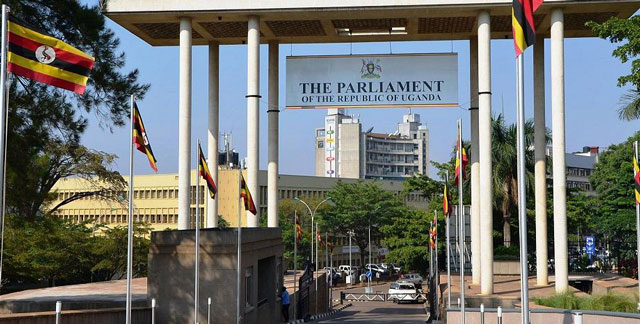
A major advantage is the relevance it gives small parties as long as they can send a member to parliament
COMMENT | MAGEZI KIRIINJJU | The minister of internal affairs, Maj General Kahinda Otafiire was recently quoted in the media addressing another person at a gathering saying; “we fought for democracy, the right to choose my leader. I have heard voices in parliament saying the president should be elected by parties. I respect that view of yours but i don’t share it. Tell your colleagues who are peddling that idea that they should be humble enough to understand why those of us who framed the constitution said the president shall be elected by the people.”
A few days later, the leader of opposition in parliament Joel Ssenyonyi was also quoted saying; “the major reform they want to bring in this parliament is to change the presidential system such that the president is elected by parliament. They want to go through somebody from opposition to bring and table a private member’s bill regarding reforms. Then the state will take over that.”
First, Otafiire is aware that Chapter Eighteen of Uganda’s constitution provides for an amendment where applicable saying “Subject to the provisions of this Constitution, Parliament may amend by way of addition, variation or repeal, any provision of this Constitution in accordance with the procedure laid down in this Chapter.” So, while he doesn’t share the view, he should also be humble enough to acknowledge that the very constitution he helped frame provides for changes when majority want or circumstances necessitate so.
But most unfortunate, the two gentlemen have created an impression that a parliamentary system of governance is undemocratic and will bring untold disenfranchisement of Ugandan voters. That is not true at all, in fact, it might even be better than our current presidential system in which the winner takes it all.
So, what is the difference between parliamentary democracy and presidential democracy? Electorally, in a presidential democracy, a leader is elected directly by voters. I Magezi will cast my vote for NRM candidate Kiriinjju for president but retain a choice to vote for Rwabugyiri for member of parliament on FDC ticket. In simple language, my vote for president has no bearing for my vote for member of parliament. I have a choice to vote one party for president and another for member of parliament directly.
But in parliamentary democracy, my vote for the party member of parliament is also a vote for the party presidential flag bearer. This means, if NRM fronts Magezi for president, any vote for any member of parliament for NRM is also a vote for Magezi the presidential candidate. This means that the presidential candidate of the party with most members of parliament depending on the threshold constitutionally agreed will automatically become president or prime minister.
Therefore, the notion that members of parliament choose the president is not true, it is voters who decide which party gets majority parliamentarians to be able to form the next government.
What advantages does parliamentary democracy offer that are better than presidential democracy?
In parliamentary democracy, the executive branch derives its legitimacy from and is accountable to the legislature/parliament. The two branches of government are interconnected. The head of government, a president in a republic or prime minister in a monarch, comes from the majority party in the parliament and is accountable to the parliament.
Under parliamentary system, it is easier to replace a president or prime minister if his/her leadership becomes untenable. The ruling party has capacity to recall the individual without elections, replace her/him with another party member. The recent example is United Kingdom where the Conservative Party recalled prime minister Boris Johnson and replaced him with Liz Truss who ruled for one month and was also recalled and replaced with Rishi Sunak all without going through an election.
Another example is South Africa where president Thabo Mbeki was recalled by his party, the ANC on suspicion that he interfered in legal processes against Jacob Zuma. He was replaced by Kgalema Motlanthe as president. Therefore, the executive must maintain confidence of majority members of parliament to stay in power. Otherwise, parliament could easily recall their services and replace them with new leaders.
A major advantage of parliamentary democracy is the relevance it gives small parties like the Conservative Party of Lukyamuzi, the Peoples Progressive Party of Bidandi Ssali and Uganda Peoples Congress of Jimmy Akena in Uganda. As long as they can send a member to parliament, they stand a chance to participate in government through coalitions should the major parties fail to achieve the required majority to form government. An example is Israel and South Africa today.
Because the LIKUD party failed to get enough MPs to form government, Benjamin Netanyahu was forced to ally with smaller parties like the Shas, United Torah Judaism and Otzma Yehudit to form government. In South Africa, the African National Congress of Cyril Ramaphosa failed to reach the threshold of parliamentary majority to form a government and allied with the Democratic Alliance, the Inkatha Freedom Party and the Patriotic Alliance to form a national unity government, with Cyril Ramaphosa being re-elected President of South Africa.
This also means the cost of elections goes down, otherwise in a presidential democracy, if all parties fail to get the required majority to form a government, the two leading parties go back to voters in a re-run. This is another round of costly campaigns and printing materials to be used in facilitating a free and fair election.
But also, this coalition arrangement expands the manifesto by combining the agendas of the parties that have entered into an agreement to form a government. This in the end is advantageous to citizens who stood a risk of enduring unpopular policies of the winning political party.
Therefore, if you come from small parties like CP, DP, PPP and or large parties like FDC or NUP that cannot win an election in a presidential system, you should be the one supporting the adoption of a parliamentary democracy system because all you will need is to make sure NRM fails to make the required majority in the House and then ask for a coalition to participate in governance of Uganda as opposed to being a perpetual opposition.
*****

The writer is a Communications Officer at the Government Citizen Interaction Centre (GCIC) and a member of the Campfire Ideological Study Group.
 The Independent Uganda: You get the Truth we Pay the Price
The Independent Uganda: You get the Truth we Pay the Price

